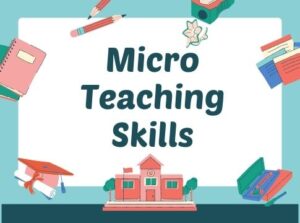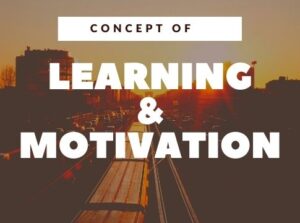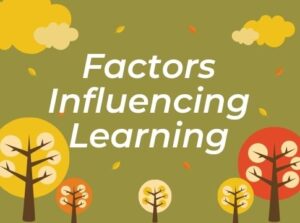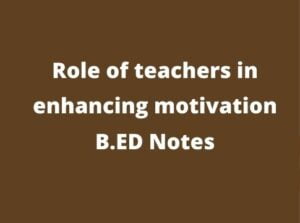Social Cognitive Theory also called social learning theory is based on the idea that people learn by watching what others do and that the human thought process is central to understanding personality. Social learning theory suggests that all learning is the result of an association formed by Conditioning, reinforcement and Punishment. Bandura’s Social learning theory proposed that learning can also occur simply by observing the actions of others. This theory is also known as an observational learning theory.
Social Learning theory was proposed by Albert Bandura, he was born on 4th December 1925, in the small town of Mundare in Northern Alberta, Canada. Bandura has presented his theory in a series of books. He wrote Adolescent Aggression (1959) in which social learning principles were used to describe personality development. This is followed by another book Social Learning and Personality Development (1963) in which Bandura and his junior Walter presented the social learning principle they had developed
Bandura’s Social Learning theory of personality
The social learning theory of personality is based on the premise that human behaviour is largely acquired and the principles of learning are sufficient to account for the development and maintenance of behaviour. The earlier learning theorist was unable to pay attention to the behaviour taking place in a social context.
Bandura spent his whole life working on the development of social learning theory and he is famous for his social learning theory which is recently renamed as Social Cognitive Theory.
Principles of Observational Learning
Bandura’s Social Cognitive approach represents a break from traditional theories by proposing that cognitive factors are central to human functioning and that learning can occur in the absence of direct reinforcement. That is, learning can occur simply through observation of models and in the absence of reinforcement.
Bandura argued that some of the traditional principles of learning such as the laws of reinforcement and punishment are more relevant to performance than to acquisition. According to Albert Bandura, Learning can occur outside the boundaries of pleasure and pain. Thus, people learn a great deal simply by watching or observing others, by reading about what people do, and by making general observations of the world.
Bandura’s Bobo Doll Experiment
To illustrate how people learn from watching or observing others, Bandura constructed an experiment called Bobo Doll Behaviour: A Study of Aggression. In this experiment, Bandura Exposed a group of children to a video, featuring violent and aggressive action. for the experiment he made of film of one of his students, a young woman, essentially beating up a Bobo doll. Bobo Doll is an inflatable, egg-shaped ballon creature with a weight in the bottom that makes it bob back up when you knock him down.
The woman punched the clown, shouting “sockeroo!” she kicked it, sat on it, hit it with a little hammer, and so on, shouting various aggressive phrases. Bandura showed this film to groups of kindergartners who, as you might predict, liked it a lot. They then were let out to play. Th the playroom, of course, were several observers with pen and clipboards in hand, a brand new bobo doll, and a few little hammer.
The observers recorded that a lot of little kids beat the daylights out of the Bebo doll. They punched it and shouted “sockeroo” kicked it, sat on it, hit it with the little hammers and so on. In other words, they imitate the young lady in the film and quite precisely at that.

Also Read: Gange Conditions of Learning
The modelling Process/ Mediational Process of Social Learning theory
Not all observed behaviours are effectively learned. The factors involved in both the model and the learner can play a role in whether social learning is successful. Certain requirements and steps must also be followed.
The following steps are involved in the observational learning and modelling process:
Attention: In order to learn, children need to be paying attention. Anything that distracts a child’s attention is going to have a negative effect on observational learning. If the model is interesting or there are novel aspects to the situation, the child is far more likely to dedicate their full attention to learn
Retention: The ability to store information is also an important part of the learning process. Retention can be affected by a number of factors but the ability to pull up information later and act on it is vital to observing learning
Reproduction: Once the child paid attention to the model and retained the information, it is time to actually perform the behaviour child observed. Further practice of the learned behaviour leads to improvement and skill advancement
Motivation: In order for observational learning to be successful, children have to be motivated to imitate the behaviour that has been modelled. Reinforcement and punishment play an important role in motivation. While experiencing these motivators can be highly effective, so can observing other experiences of some type of reinforcement or punishment.
Educational implications of Bandura’s Social learning theory
Bandura’s Social learning theory has numerous classroom implications-
- Students learn by simply observing others, so we teachers are the role model for students we must be good at Mannering in front of children.
- Describing the consequences of behaviour increasing appropriate behaviour, decreasing inappropriate behaviours; this includes discussing the rewards of various behaviours
- Modelling such as attention, retention, reproduction and motivation provides an alternative to teaching new behaviours
- Students must believe that they are capable of accomplishing a task, it is important to develop a sense of self-efficacy
- Teachers should help students self realistic expectations; ensure that expectations are realistic and challenging
- Self-regulation techniques provide an effective method for improving students’ behaviours.
- Teachers and parents must model appropriate behaviours and be careful that they do not model inappropriate behaviour
- Teachers should expose students to a variety of other models. This technique is especially important to break down traditional stereotypes.
Conclusion:
We can conclude from the above points, that Bandura’s Social learning theory is one of the most influential theories of learning and development. This theory states people can learn new information and behaviour by watching others people, this type of learning can be used to explain a wide variety of behaviour.
References:
- Dharmaraj, D. (2021). Retrieved 22 November 2021, from https://www.bdu.ac.in/cde/docs/ebooks/B-Ed/I/LEARNING%20AND%20TEACHING.pdf



